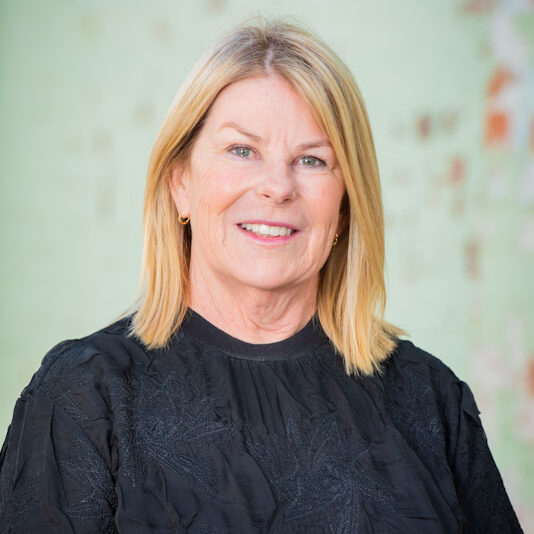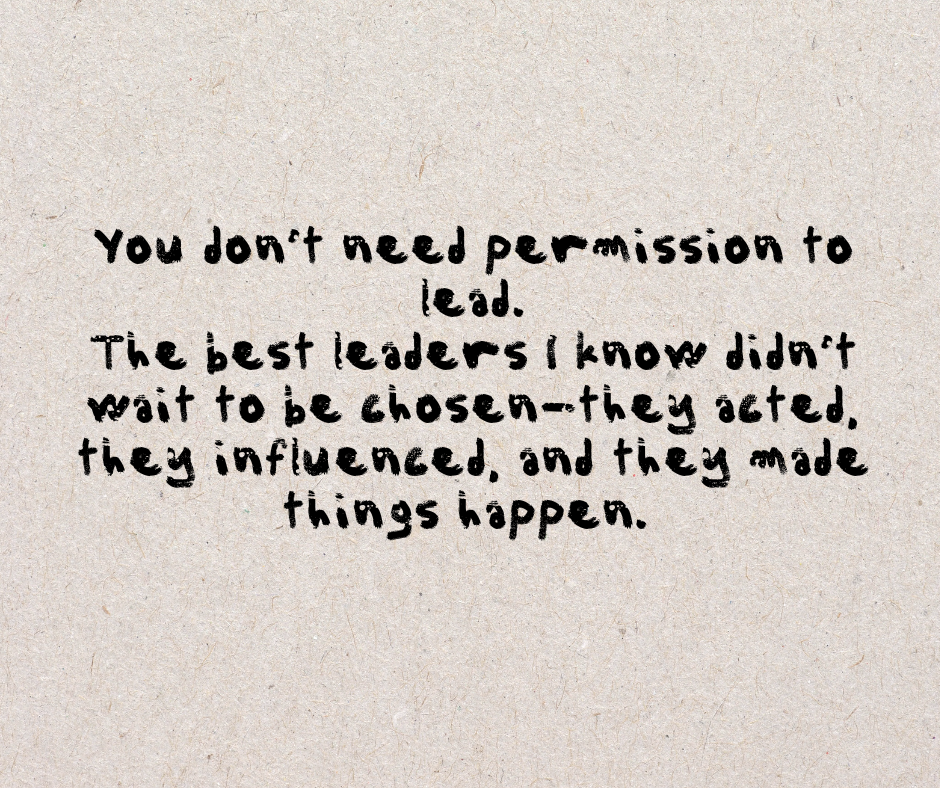
Kym Goodes’ career has been defined by a deep commitment to working in the service of others—whether through public service, leading not-for-profits, or now as the founder of 3P Advisory.
At its core, her work has always focused on social policy and ensuring that every Tasmanian has access to a good life.
We sat down with her to understand challenges she has overcome throughout her career as a woman leader, why we need to stop talking about imposter syndrome, what she loves about IWFA and her tips for maintaining a solid network.
Please tell us about your career background
After starting my career in banking, I moved into a role in government, shaping policies that directly impact communities. That experience gave me an understanding of how systems operate and the challenges of driving change from within. Through this, I saw firsthand how policies translate into lived experiences and the importance of giving voice to those most affected. I spent five years as the CEO of the peak body for the community sector in Tasmania – challenging and changing the systems, behaviours and attitudes that lead to inequality.
Now, through 3P Advisory, I help businesses, governments, and organisations navigate stakeholder engagement and social licence. I work with large corporates, not-for-profits, and policymakers to bridge the gap between strategy and community impact—ensuring decisions are informed, ethical, and sustainable. At its heart, my work is about making sure the voices of people and communities are heard, and that businesses and institutions operate in ways that earn and maintain public trust.
I also Chair two boards and I am a director on two other boards. As Chair of the Tasmanian Community Fund, I have recently moved into the role and lead a board responsible for overseeing the strategic direction and governance of a legislated fund that provides grants to community organisations across Tasmania. The Fund plays a crucial role in supporting initiatives that strengthen communities, address social challenges, and drive long-term impact. My focus as Chair is on ensuring the Fund remains aligned with its core purpose and that funding priorities meet emerging needs, and fostering strong relationships with stakeholders. We are commencing a stakeholder feedback and pulse check to ensure the Fund’s grants mechanisms continue to be responsive, accessible, and equitable.
As Chair of NILS Tasmania, I oversee the governance and strategic direction of Tasmania’s provider of No Interest Loans. NILS Tasmania provides crucial financial inclusion support, offering fair and accessible lending options for individuals and families experiencing financial hardship. My role involves ensuring the organisation remains financially sustainable, advocating for systemic policy improvements in financial resilience, and strengthening partnerships to expand access to fair finance. At its heart, NILS Tasmania is about dignity, empowerment, and breaking cycles of financial stress, and I’m committed to driving impact in this space.
I am also a director on Roadways and Salveo Health Services boards.
What challenges have you faced being a woman leader, and how did you overcome them?
One of the biggest challenges I’ve faced as a woman leader is the expectation to conform to traditional leadership models that don’t always align with my values or leadership style. There’s often an implicit bias that leadership should look a certain way—authoritative, transactional, or unwavering. I’ve had to consciously challenge this by leading in a way that is both strategic and relational, proving that influence, collaboration, and ethical decision-making are just as powerful as more traditional command-and-control approaches. Overcoming this has meant staying true to my values, building strong networks of like-minded leaders, and demonstrating that success comes not just from individual achievement but from collective impact. I’ve also demonstrated that by taking a strong ethical approach to leadership, you can be frank and fearless in public influence and advocacy and in doing so, win the respect of senior decision-makers.
What do you think we can do to further women’s leadership in Australia today?
We need to move beyond simply ‘encouraging’ women to lead and start actively dismantling the barriers that make leadership inaccessible. That means rethinking how leadership is defined and valued, ensuring that boards and executive teams reflect the diversity of the communities they serve, and embedding policies that genuinely support women—such as flexible work, equitable promotion pathways, and tackling unconscious bias in decision-making. We also need to stop framing women’s leadership as a ‘pipeline issue’—the talent is there; the structures need to change.
The other (maybe unpopular) view I have is we need to stop the banter and labelling that has emerged around “imposter syndrome”. By using this terminology, we are implicitly sending a message we are imposters. All people regardless of gender, feel insecure when stepping up into leadership roles, it is not doing women a favour by labelling it. Let’s stand tall and proud in the fact that as a new leader, women have the emotional intelligence and are open to learning, rather than the negative image “imposter” brings.
What is one piece of advice you wish you received earlier in your career?
You don’t need permission to lead. Too often, women wait until they feel ‘ready’ or until someone validates their leadership potential. The truth is, leadership is about stepping forward even when you feel like an outsider, even when you don’t have all the answers, and even when the space you’re stepping into feels intimidating. The best leaders I know didn’t wait to be chosen—they acted, they influenced, and they made things happen.
What is one key leadership trait that will be essential in the next decade and why?
Adaptability. The world is shifting rapidly—socially, politically, environmentally, and technologically. Leaders who can navigate uncertainty, think systemically, and remain open to change and people who think differently will be the ones who thrive. The next decade will demand leaders who are proactive in shaping the future by naming up some of the difficult conversations we need to have about what we want our society to look like. They also need to be able to manage complexity without losing sight of purpose, and who can build strong, values-driven teams in a rapidly changing world.
What do you love about IWFA, or why were you compelled to join?
IWFA represents exactly what we need more of—spaces where women leaders can come together to support, challenge, and inspire each other. Leadership can be isolating, and networks like this provide both a sounding board and a source of strength. I was drawn to IWFA because it’s a community of women who are not just leading in their own right but are also actively working to shape a better future for others. Many of the Tasmanian IWFA members are women I have known and admired for many years, so it was an honour to be invited to join them.
Key tips to maintain a good network
- Give more than you take. Networks thrive on generosity—support others, make introductions, share knowledge.
- Be intentional. Don’t just collect contacts; invest in relationships. Meaningful connections matter more than the number of connections you have. And don’t always look to get something for yourself from a relationship – seek out and spend time with interesting people for your personal growth, because it is intrinsically linked to your professional growth.
- Stay visible. Engage with your network consistently, not just when you need something. Thought leadership, events, and simple check-ins keep relationships alive.
- Diversify your network. The best insights come from people outside your immediate circle—seek out different perspectives – the outlier views are usually the best in rounding out your thinking and decision-making.
Favourite books
I love books on leadership and also autobiographies – so here are some of my many top reads!
- My all time favourite is: “My Own Words” – Ruth Bader Ginsburg
A collection of writings and speeches from the late US Supreme Court Justice, offering insights into leadership, law, and perseverance. - “Becoming” – Michelle Obama
A deeply personal memoir by the former First Lady of the United States, reflecting on leadership, resilience, and navigating power structures as a woman. - “Women and Leadership: Real Lives, Real Lessons” – Julia Gillard & Ngozi Okonjo-Iweala
Former Australian Prime Minister Julia Gillard and economist Ngozi Okonjo-Iweala examine the challenges women face in leadership and share lessons from global female leaders. - “The Education of an Idealist” – Samantha Power
Former US Ambassador to the UN reflects on her journey from war correspondent to policymaker and the moral dilemmas of leadership. - “A Long Walk to Freedom” – Nelson Mandela
A powerful memoir by the former South African President, exploring leadership through struggle, resilience, and reconciliation. - “The Infinite Game” – Simon Sinek
A thought-provoking book on why great leaders play for the long term, rather than seeking short-term wins. - “Let My People Go Surfing” – Yvon Chouinard
The founder of Patagonia (a leader in ethical business) shares insights on values-driven leadership and sustainability.

